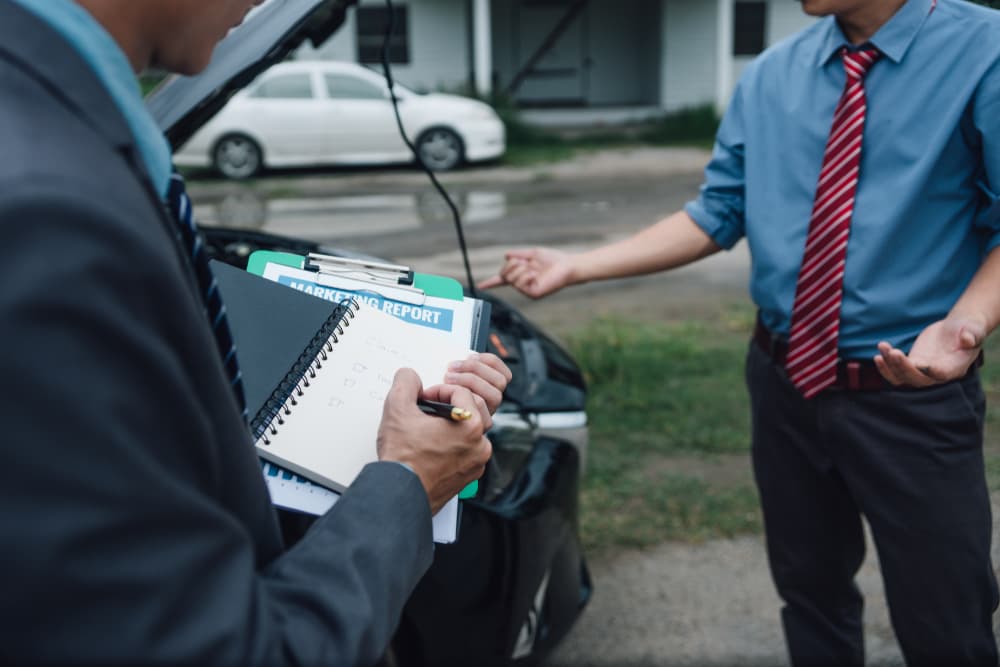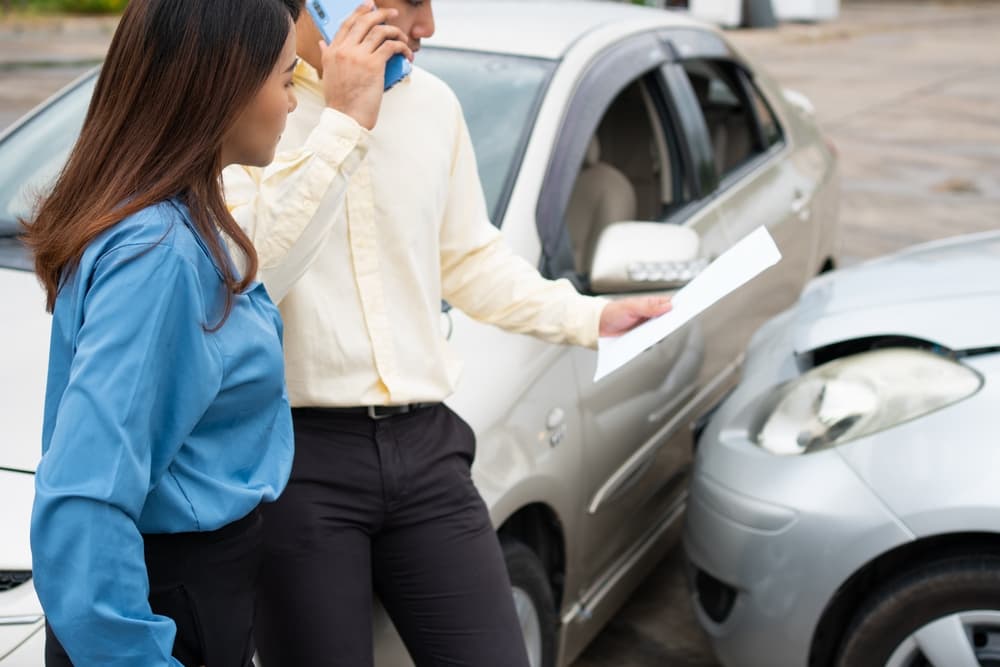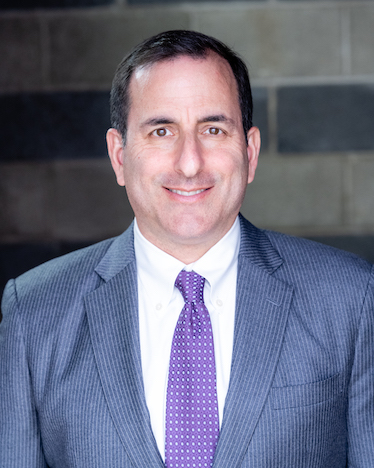Car accidents and injuries frequently occur when drivers are negligent and reckless. In these circumstances, accident victims may be eligible to file a personal injury claim with the responsible driver’s insurance company. However, in many situations, the insurance company will do everything possible to deny liability in a car accident case or, at the very least, offer as little settlement compensation to the accident victim as possible. Insurance companies take this approach to save as much money as possible.
Moreover, when accident victims attempt to represent themselves against an insurance company, the insurance company may take advantage of them by significantly undervaluing their claims.
If you suffered injuries in a recent car crash that a negligent driver caused, your car accident attorney can fight the insurance company on your behalf and aggressively pursue the financial recovery you deserve. Your lawyer can also threaten the insurance company with litigation and work to recover the full monetary damage you deserve in your claim or lawsuit.
Schedule a Free Initial Consultation Today!
Common Locations for Local Car Accidents
Car accidents stemming from others' negligence often occur in urban centers, particularly at busy intersections and downtown areas where traffic congestion and diverse road users contribute to the heightened risk. Negligent actions such as running red lights, failure to yield, and distracted driving in these bustling locales can lead to collisions, affecting drivers who may be diligently following traffic rules.
Interstate highways, crucial for statewide connectivity, become sites of accidents due to others' negligence. Reckless driving, tailgating, and sudden lane changes by some motorists on these high-speed roadways can result in collisions affecting law-abiding drivers who find themselves entangled in the aftermath of negligent behavior.

Residential neighborhoods, despite lower speed limits, witness accidents due to others' negligence, often involving drivers who ignore stop signs and speed limits or engage in distracted driving. Pedestrians and cyclists in these areas are particularly vulnerable to accidents caused by negligent drivers who fail to prioritize safety.
Parking lots also become arenas for accidents resulting from others' negligence, as distracted or impatient drivers navigate confined spaces. Fender-benders, sideswipes, and other collisions occur when drivers neglect to exercise caution, failing to yield or maintain proper distances in these crowded environments.
Rural highways and roads, although characterized by less traffic, are not exempt from accidents caused by others' negligence. Speeding, aggressive driving, or failure to observe traffic laws in these areas can lead to serious accidents, affecting responsible drivers who share the road.
Finally, school zones and areas around educational institutions often experience accidents due to negligence by others. Inattentive drivers may ignore school zone speed limits or fail to yield to school buses and pedestrians, putting the safety of students and parents at risk.
Injuries in Car Accidents
Car accidents resulting from someone else's negligence can inflict a range of bodily and mental injuries on individuals, often leading to profound and enduring consequences. Physical injuries encompass a spectrum, with soft tissue injuries being prevalent. Whiplash, caused by the rapid back-and-forth motion of the neck during a collision, can result in neck and back pain, headaches, and restricted mobility. Sprains, strains, and contusions to various body parts contribute to the physical toll, affecting victims' ability to perform routine tasks and engage in regular activities.
More severe accidents can lead to fractures and broken bones, affecting limbs, ribs, or the spine. These injuries often demand surgical intervention, prolonged periods of immobilization, and extensive rehabilitation. The recovery process can be arduous, influencing individuals' independence and overall quality of life.
Traumatic brain injuries (TBIs) represent a particularly serious category of bodily injury resulting from car accidents. The force of impact or sudden deceleration can cause concussions or more severe brain trauma, leading to cognitive impairments, memory loss, and long-term neurological challenges. Individuals who suffer TBIs may require extensive medical treatment, rehabilitation, and ongoing care to manage the lasting effects on their cognitive functions.
While not always immediately apparent, internal injuries can also have severe consequences. Organ damage or internal bleeding, often resulting from the force of the collision, can be life-threatening. Identifying and promptly treating these injuries is essential to preventing further complications and ensuring the well-being of the affected individuals.
Beyond physical injuries, car accidents can also induce significant mental and emotional trauma. Post-traumatic stress disorder (PTSD) may develop, manifesting in flashbacks, nightmares, anxiety, and heightened stress levels. Emotional distress can affect daily functioning, relationships, and overall mental well-being, necessitating therapeutic interventions and psychological support.
Chronic pain syndromes often emerge from car accident injuries, persisting long after the initial collision. Conditions like complex regional pain syndrome (CRPS) can significantly reduce the quality of life, requiring ongoing pain management strategies and medical care.
The bodily and mental injuries resulting from car accidents caused by someone else's negligence are diverse and far-reaching. The comprehensive effect encompasses physical pain, cognitive challenges, emotional distress, and long-term repercussions that demand extensive medical care, rehabilitation, and support systems to help affected individuals navigate the complex aftermath of such traumatic events.
Common Types of Car Accident Insurance Claims
After a car accident, understanding the distinctions between third-party claims, uninsured motorist claims, and underinsured motorist claims is crucial for navigating the complex landscape of insurance coverage.
A third-party claim arises when an injured party seeks compensation directly from the at-fault driver's insurance company. This scenario assumes that the responsible driver has liability coverage. The injured party, the claimant, communicates with the at-fault driver's insurance to negotiate a settlement for damages, including medical expenses, property damage, and other losses. Third-party claims hinge on establishing the other driver's liability and can involve negotiations, mediation, or even litigation to secure a fair resolution.
On the other hand, uninsured motorist (UM) claims come into play when the at-fault driver does not have insurance or is unidentifiable (hit-and-run). In such cases, the injured party turns to their own insurance company for compensation. Uninsured motorist coverage is a component of the injured party's policy designed to protect them when the responsible party lacks adequate coverage. UM claims involve filing a claim with the claimant's insurer, and the insurer steps into the shoes of the absent or uninsured at-fault driver, compensating the injured party up to the policy limits.
Underinsured motorist (UIM) claims emerge when the at-fault driver possesses insurance, but the coverage is insufficient to cover the full extent of the injured party's damages. In this situation, the injured party files a claim with their own insurance company to make up the difference between the at-fault driver's coverage and the total damages incurred. UIM coverage becomes invaluable when facing medical expenses, property damage, or other losses surpassing the at-fault driver's insurance limits.
An experienced car accident lawyer in your area can determine the appropriate claim(s) to file in your case and will aggressively pursue the financial compensation you deserve while negotiating with settlement adjusters.
Why Are Insurance Companies Difficult After a Car Accident?

Dealing with insurance companies after a car accident can often prove challenging due to several factors inherent in the claims process. While providing a crucial service, insurance companies are fundamentally businesses aiming to minimize financial liabilities. As a result, their primary objective is to settle claims swiftly and cost-effectively. This approach can lead to difficulties for individuals seeking fair compensation after an accident.
One significant challenge is the tendency of insurance companies to undervalue claims. Adjusters may downplay the severity of injuries, dispute the necessity of certain medical treatments, or offer settlements that do not adequately cover the full extent of damages. This undervaluation can leave individuals grappling with financial burdens, especially when faced with mounting medical expenses, property damage, and lost income.
Delay tactics are another common strategy employed by insurance companies. Prolonged investigations, repeated requests for documentation, and extended negotiations contribute to a protracted claims process. These delays can place additional stress on claimants who may urgently need financial support for medical treatments and other essential expenses.
Insurance companies may also attempt to shift blame or downplay their policyholder's liability. This tactic can complicate negotiations, particularly in cases where parties contest fault or share liability. The insurance company's goal is to minimize the amount they must ultimately pay out in settlements, and disputing liability is one way they attempt to achieve this.
Car accident lawyers play a crucial role in navigating these challenges and fighting for the rights of their clients. Lawyers understand the legal complexities surrounding car accidents, insurance policies, and liability issues. They can counter the tactics employed by insurance companies, presenting evidence, medical records, and expert opinions to substantiate their clients' claims. Moreover, car accident lawyers possess negotiation skills honed through experience, allowing them to effectively engage with insurance adjusters and advocate for fair settlements. In cases where negotiations fail to yield a satisfactory outcome, lawyers are prepared to escalate the matter to litigation, taking legal action to protect their clients' rights and ensure they receive the compensation they deserve.
The challenges insurance companies pose after a car accident stem from their profit-driven nature and efforts to minimize financial exposure. Car accident lawyers advocate for individuals, countering undervaluation, delays, and dispute tactics, fighting for fair compensation, and ensuring that the legal system works to protect the rights and well-being of those affected by car accidents.
Car Accident Litigation Steps
Litigation – or pursuing a car accident claim in court – is a comprehensive legal process that demands careful consideration and strategic actions. Litigation may be necessary in cases where an insurance company denies fault for an accident or refuses to compensate the accident victim adequately.
One of the most important steps in litigation involves gathering evidence promptly. This step encompasses obtaining police reports, witness statements, and any relevant photographs from the scene. This evidence serves as the foundation for the legal claim, offering a comprehensive overview of the accident's circumstances.
The next step – initiating the legal complaint – involves drafting a comprehensive document that outlines the accident victim’s grievances and seeks appropriate remedies. This step marks the beginning of the formal litigation process, with the at-fault party responding to the allegations. The subsequent phase, known as discovery, involves exchanging relevant information and evidence between the parties.
Mediation or settlement negotiations often follow, providing an opportunity to resolve the matter without a protracted trial. However, if the parties do not agree, the case proceeds to trial preparation. This phase involves refining legal arguments, preparing witnesses, and constructing a compelling case.
The trial unfolds in a structured manner, with both sides presenting evidence and witnesses. The judge or jury deliberates, rendering a verdict that determines the outcome. Post-trial, enforcing the judgment or pursuing an appeal may be necessary depending on the case's outcome.
Successfully pursuing a car accident claim in court demands diligence, legal insight, and a thorough understanding of the intricacies involved. It is a process that seeks to secure just compensation for those adversely affected by the consequences of a car accident.
Car Accident Monetary Damages
In the realm of personal injury claims arising from car accidents, victims may be entitled to distinct types of damages, encompassing economic, non-economic, and punitive categories.
Economic damages are quantifiable, tangible losses that directly result from the accident. Medical expenses fall within this category, covering immediate and ongoing healthcare needs. Additionally, due to the inability to work during recovery or permanently, a claimant may pursue lost income — financial compensation for the effect on the victim's earning capacity. Property damage is another form of economic damage, encompassing the costs of repairing or replacing damaged vehicles and personal belongings. This quantifiable loss directly stems from the accident, and victims can seek compensation for restoring their property.
On the other hand, non-economic damages are more intangible losses that often relate to the emotional and psychological toll of the accident. Pain and suffering, including physical discomfort and emotional distress, fall under this category. Victims may be eligible for compensation based on the subjective and personal effect of the accident on their well-being. Loss of consortium is another non-economic damage involving the deprivation of familial relationships or companionship due to the victim's injuries. This recognizes the broader repercussions on the individual's personal life and relationships beyond the immediate physical and financial consequences.
An accident victim might also seek punitive damages (although less common) to punish the at-fault party for particularly egregious behavior. These damages aim to deter similar conduct in the future and serve as a form of punishment rather than compensation for specific losses. Courts may consider recklessness, gross negligence, or intentional misconduct when deciding whether to award punitive damages.
While economic damages focus on tangible losses, non-economic damages delve into the emotional and relational aspects of the victim's experience. Punitive damages, when applicable, go beyond compensation, aiming to hold the responsible party accountable for their actions. The combination of these diverse categories seeks to address the comprehensive effects of a car accident on an individual's life, both in measurable and abstract terms.
Call an Experienced Car Accident Lawyer Right Away to Explore Your Legal Options
When fighting the insurance company after a car accident, a knowledgeable personal injury attorney can be extremely helpful. Your personal injury lawyer can manage all written and spoken communications with insurance company representatives and work to secure the financial compensation you need for your accident-related losses.
